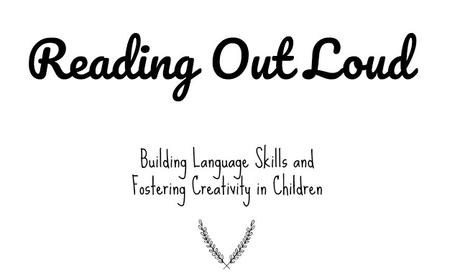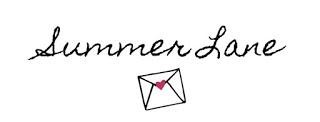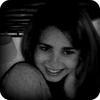 Here are the facts: I taught writing and grammar for six years. Over the course of those six years, I worked with kids ranging from kindergarten to high school. I specialized in teaching children how to take the imaginative ideas inside their heads and place them on paper in an organized and coherent fashion that both educated and entertained the reader. It was a blast, and I certainly plan to continue doing writing instruction on some level for the rest of my life.
Here are the facts: I taught writing and grammar for six years. Over the course of those six years, I worked with kids ranging from kindergarten to high school. I specialized in teaching children how to take the imaginative ideas inside their heads and place them on paper in an organized and coherent fashion that both educated and entertained the reader. It was a blast, and I certainly plan to continue doing writing instruction on some level for the rest of my life. As a writing and grammar teacher, I emphasized the importance of reading above all else. Typically, I would have each of my students read one book per week during the school year (sometimes one book every two weeks if it was a particularly long-winded book), regardless of their age or reading level. If I had a younger student, naturally they would be reading a shorter book. Older students would read more "difficult" books. By the end of each semester, each student would always show a profound improvement in their vocabulary, sentence structure, and creativity. Reading, in many ways, did more for their writing skills than writing itself. Why? Because reading is a doorway to language skills. It's the doorway to structuring a cohesive form of communication. Reading ignites imagination, stimulates intellectual thought and reasoning, expands the reader's internal cache of terminology and wisdom, and best of all: it literally teaches you how to write. Through reading, we learn how to tell a story, and how to create characters who matter to our readers.
Because of the integral part that I believe reading plays in educating children, I am a massive supporter of reading aloud to little ones, even babies. Especially babies, as a matter of fact. I have been reading to my daughter since the day I brought her home, when she was just three and a half days-old. I read everything aloud to her: poetry, board books, magazine articles. Her sharp, inquisitive mind is soaking it all in, and inside her rapidly growing brain, she is cataloging the language skills that reading brings to the table. She's already emulating many word tones and sounds, and although she may not understand what I'm saying to her quite yet, she will. Soon.
I always encourage parents to read to their children. Try not to be offended, but I can't imagine anything worse than giving my child an iPad. Digital stimulation like that is not meant for little minds. Books, board games, fresh grass and basketballs is how a child should grow up, and storytelling is an imperative part of a healthy childhood. Stories relate ideas about the world around us in terms that a child can connect with. A book will not just entertain your kid...but it will educate them, as well. I'm firmly and unyieldingly against young children playing video games or having smart phones (this is my opinion, of course, so feel free to disagree, but I will happily debate this point), as I feel that the stimulation a child receives from the over-the-top graphics and animation of this age will only feed their future boredom. A kid who is only entertained by CGI and iPads is far less likely to be interested in a book than one who doesn't go to the computer for entertainment.
This is all up for debate, of course. There are a lot of studies and articles out there that look at the effects of a modern, digitally saturated world on children (see this article on Psychology Today). In 2018, The Telegraph reported that "Fortnite and other addictive video games can have a similar effect on children's brains as drug abuse or alcoholism, MRI scans reveal." (See the full article HERE) This is a serious matter, friends, and it only makes reading all the more appealing, in my opinion.
In conclusion, I want to encourage you to read to your children. Whether you're a parent or an aunt/uncle, a cousin, a friend, a godmother, a foster parent...whatever you are! Read to your children. Below, I have compiled a little list of my top favorite children's books (and by little, I mean I kept it under 50).
Questions or comments? Please feel free to share your thoughts via Twitter, by tweeting me @SummerEllenLane. Remember to keep your commentary kind and respectful. Thank you, and have a wonderful week!
 My Favorite Children's Books
My Favorite Children's Books
Biscuit, by Alyssa Satin Capucilli Click Clack Moo, Cows That Type, by Doreen Cronin Duck for President, by Doreen Cronin The Little House on the Prairie Series, by Laura Ingalls Wilder Jamberry, by Bruce Degan The Giant Jam Sandwich, by Janet Burroway and John Vernon Lord A Fly Went By, by Michael McClintock Harry The Dirty Dog, by Gene Zion Over In The Meadow, by David A. Carter Corduroy, by Don Freeman The Very Hungry Caterpillar, by Eric Carle Coat of Many Colors, by Dolly Parton If You Give A Mouse A Cookie, by Laura Numeroff Blueberries for Sal, by Robert McCloskey Pete the Cat Series, by Eric Litwin and James Dean The Tale of Peter Rabbit, by Beatrix Potter (and all of Potter's works, of course, are beautiful and whimsical) The Little Engine That Could, by Watty Piper The Cat In the Hat by Dr. Seuss (I was particularly fascinated by Wacky Wednesday, Horton Hears a Who, The Lorax, and Green Eggs and Ham, when I was a kid) Are You My Mother? by P.D. Eastman Big Dog, Little Dog, by P.D. Eastman The Gospel Story For Beginners, by Jared Kennedy Johnny Appleseed, by Reeve Lindbergh ***
You can pick up all of these titles on Amazon or Barnes & Noble. Simply visit their website to check out each title! (I am not being paid to promote any of these. I genuinely love each and every one of these books, and encourage you to add these amazing additions to your home library!)

Reading Out Loud: Building Language Skills & Fostering Creativity in Children (+ Reading Recommendation List)

